Peace Grove Nunnery
Plight of Young Nepali Girls
The girl children suffer the most from such a discriminatory attitude. In a society, which has reportedly the highest rate of son preference in the world, girls are a liability from the time they are born. Sons continue the blood linkage; daughters do not. Sons look after their parents in their old age; daughters get married off somewhere. People consider daughters are somebody else's property, to be somehow reared, brought up and given in marriage as soon as possible.
The non-status of girl children as complete human beings makes its presence felt in many discriminatory practices within the family. Girls get less medical care and have less access to food than their brothers. It is not surprising then that more girls than boys die before the age of 5 years old. In Nepal where one child in every 15 is actually malnourished, the figure is two times higher for girls than boys.
The rearing of a girl child in Nepali society involves moulding them into the future role of a wife and daughter-in-law. From the time they are young children, they are expected to be hard working, meek, obedient, soft spoken and self sacrificing. The girls are seen as somebody else's wealth, therefore any investment in a daughter in terms of education, self development, etc., is considered futile.
Peace Grove Institute
Building on the impressive success of the Metta School, a project begun by a then 15 year-old Venerable Metteyya, the Peace Grove Institute was designed to address the problem educating girls in a culturally viable manner.
Co-founded in 2010 by Venerable Metteyya and his Dharma mother Guruma Bodhi Sakyadhita, the Peace Grove Institute is a nunnery in which girls aged 7 to young adulthood have been ordained as novice nuns in order to continue their education in an environment that is socially acceptable to their families and free of charge. At the institute, they receive instruction in Buddhist history and learn to practice meditation. The peaceful and nurturing atmosphere provides a safe and loving Dhamma environment which inspires the girls to explore their potential. To learn more: Peace Grove Institute
Here in Lumbini, these grassroots project developed and implemented by a small group of determined, educated, and compassionate locals are directly in line with Anatta's overall health and education mission and project style. We have partnered with Venerable Metteyya and Guruma Bodhi to help further the educational opportunities for these girls and young women. We are working with this dedicated local team to help select, organize, and implement each project with integrity and efficiency. After the completion of the Anatta Library, we began sponsorship in an Auxiliary Nurse Midwife educational training program for the first four nunnery girls who had completed the 12th grade. These are the first village girls to attain this educational level in Lumbini.
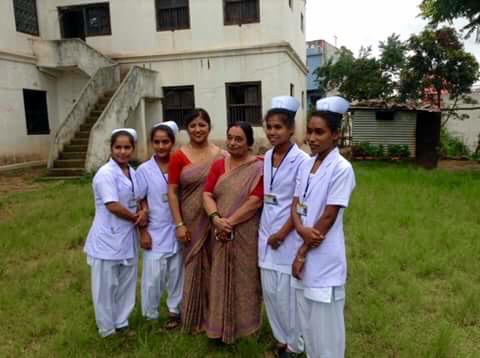
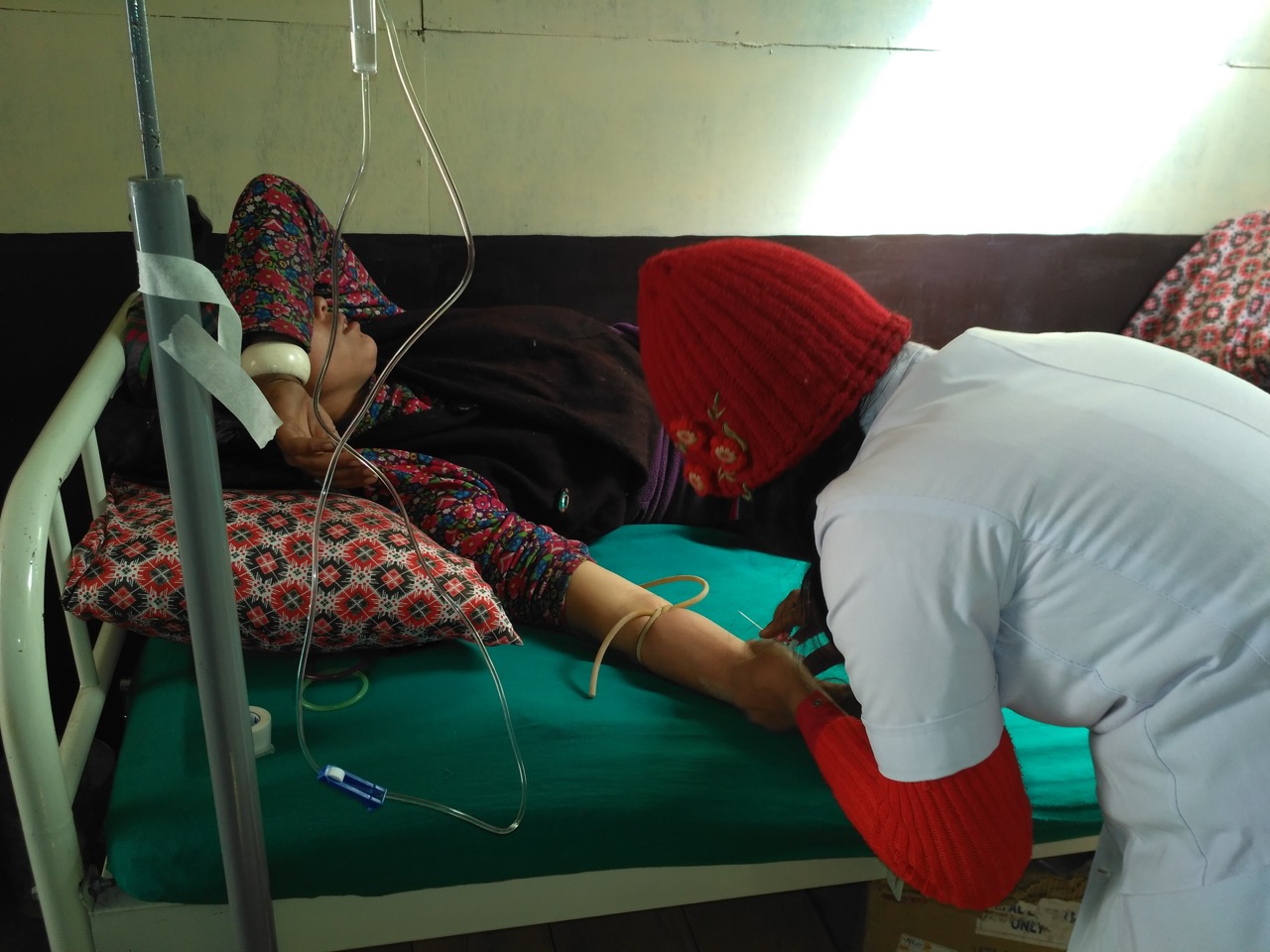
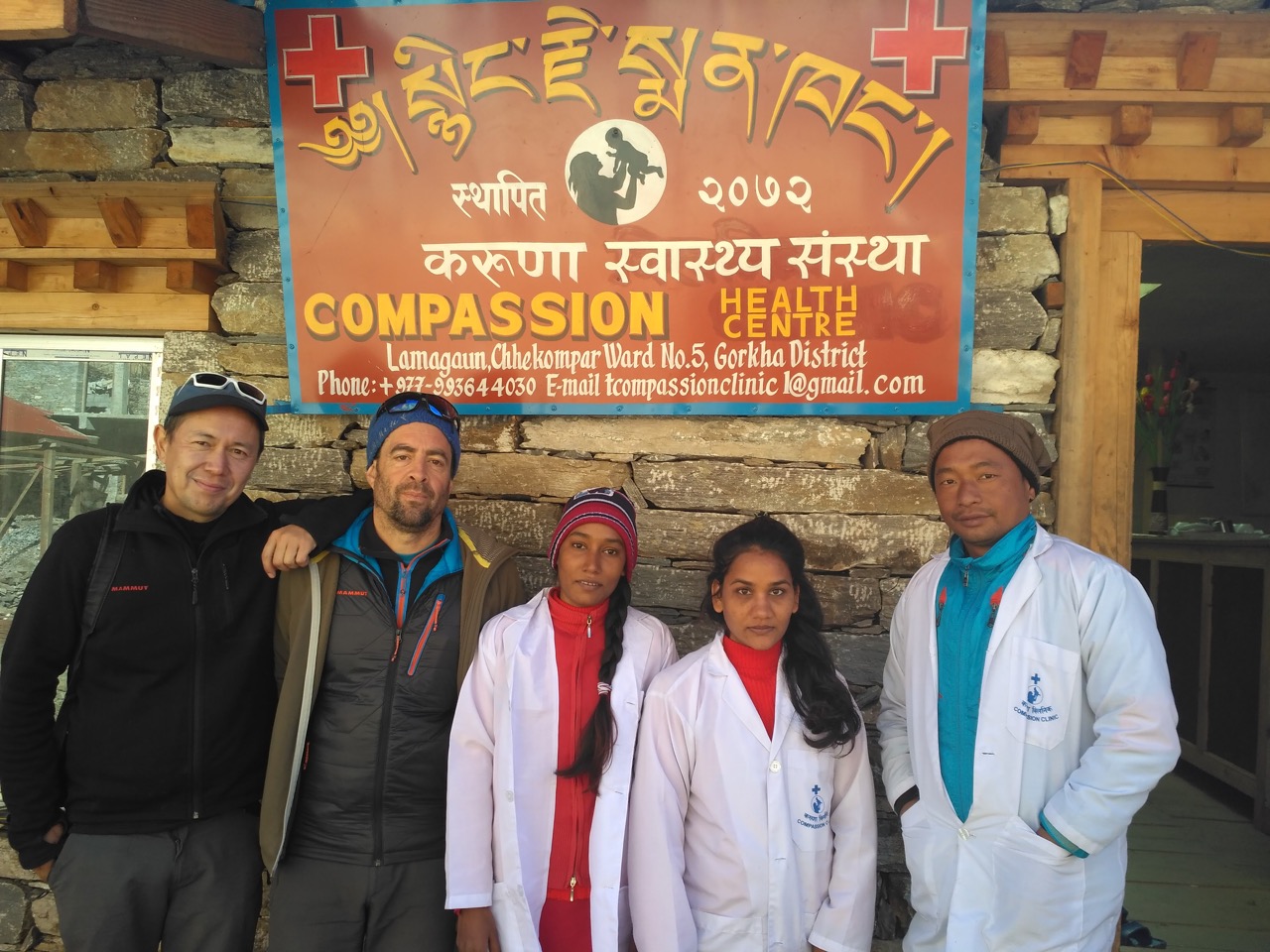
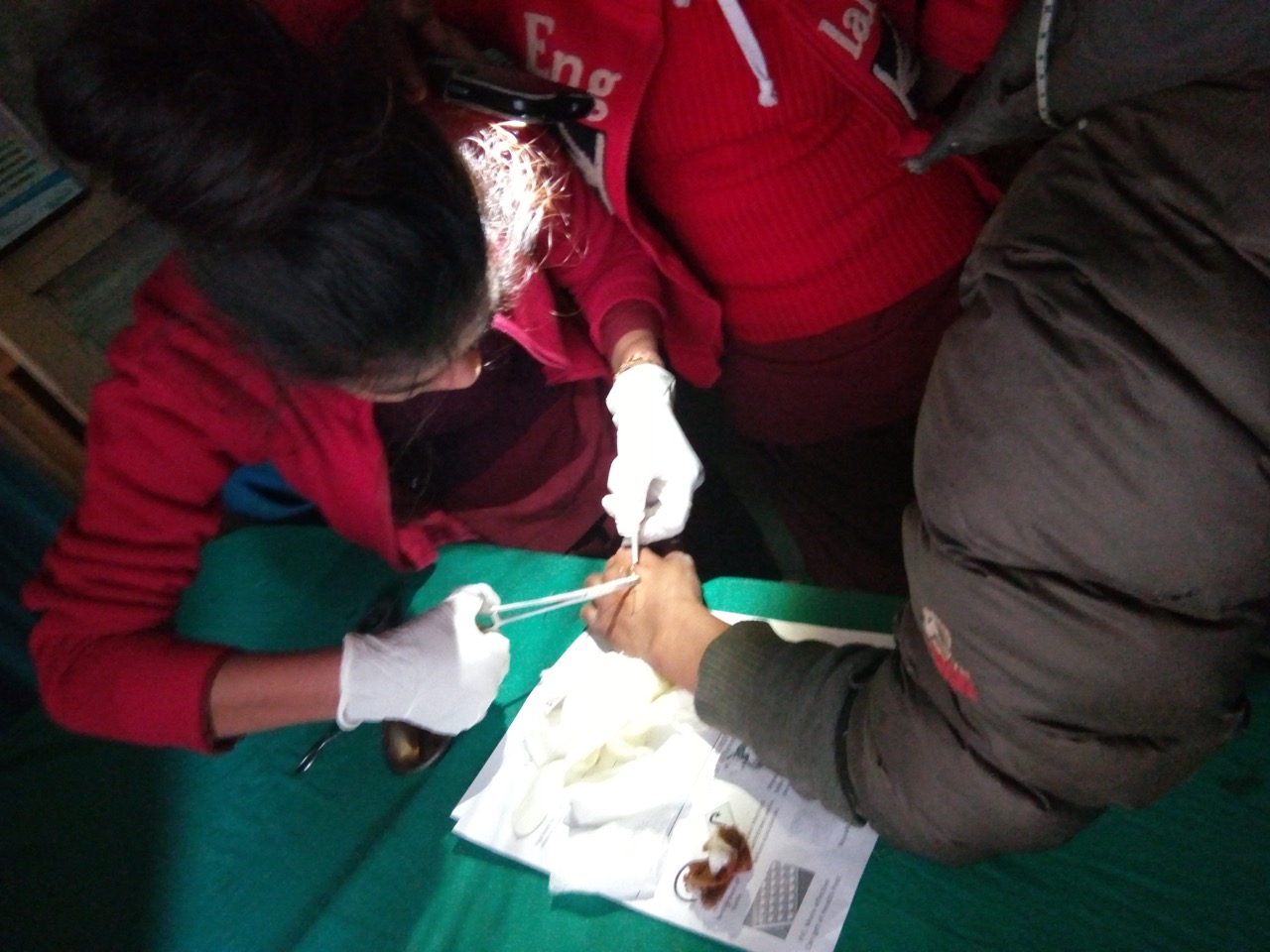
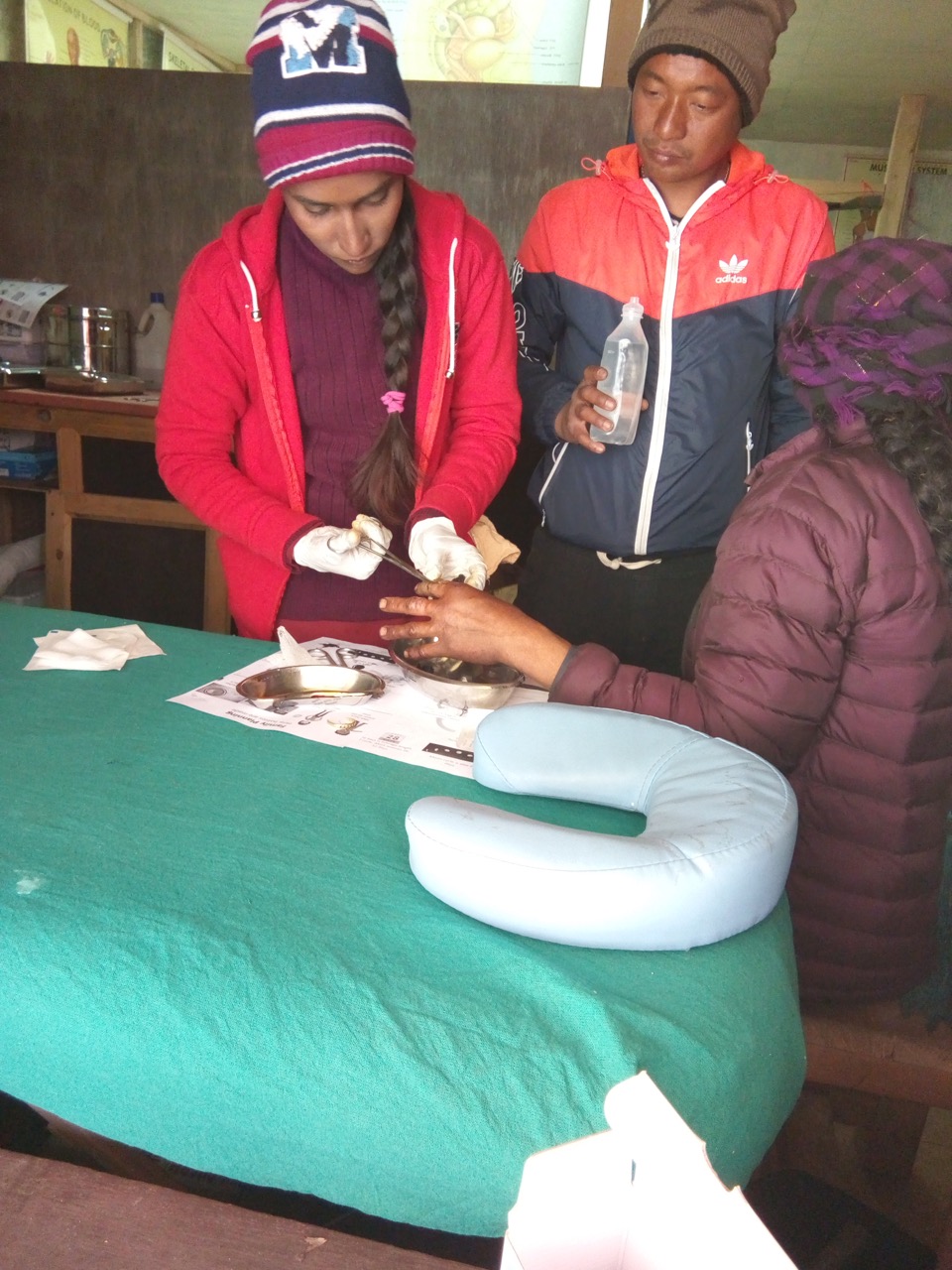
Traditional Life
A small country in the Himalayas, near India, Nepal is predominately a patriarchal society where women have a much lower status than men. Most of the culture define women as a means of reproduction and physical labor and denies them equal rights. Culturally, higher constraints on women are advocated and sanctioned.
This practice is common in the low-lying Terai district of Nepal. Young girls are denied education and forced to marry at a very young age. They are, in essence, treated as slave labor.
Traditionally, a woman has to work more than a man: in addition to child-rearing, cooking, cleaning and taking care of the livestock, she works in the fields. A woman has no rights of property and cannot participate in community affairs or influence a decision. She is not free to decide things for herself. As a result, today the females in Nepal are one of the most dominated and persecuted beings in the world. Female literacy is very low and women have no economic rights or skills. Thus they suffer greatly.
Auxiliary Nurse Midwife Program
The challenge for Anatta:
• Maternal, perinatal and neonatal mortality rates in Nepal remain among the highest in the world (281 per 100,000 live births, 45 per 1,000 and 33 per 1,000 resp. 2006)
• The majority (81%) of women are still giving birth at home without assistance of skilled birth attendants
• There is a critical shortage of trained midwives and female health workers
• Only 18% of mothers have access to skilled birth attendants throughout Nepal; it’s worse in the rural villages surrounding Lumbini and Kapilavastu
The aim of this project was to provide scholarships to help train the young women of Lumbini area in skills that will be useful in their villages, namely Auxiliary Nurse Midwife or Certified Medical Assistant training.
The first four ANMs completed practical training in 2016 - congratulations Khema, Sudharma, Mudita, Dhamadina!
The Future
Anatta continues to support higher education for all of our young women in our Peace Grove family once they complete High School in the field of their choice. Many have completed programs in health care, but we also have students pursuing degrees in business administration, sciences, archeology, education, and trainings in the hospitality industry. Often not only tuition, texts, and supplies but exam fees and room and board are part of the commitment to each young woman. If you are inspired to help sponsor some of these changemakers, please consider a donation today. The ripple effects will astound you! Please keep up with our blog where we intermittently feature some of our students.
To learn more about our ANMs and their training in the Tsum Valley, please visit our Blog:







